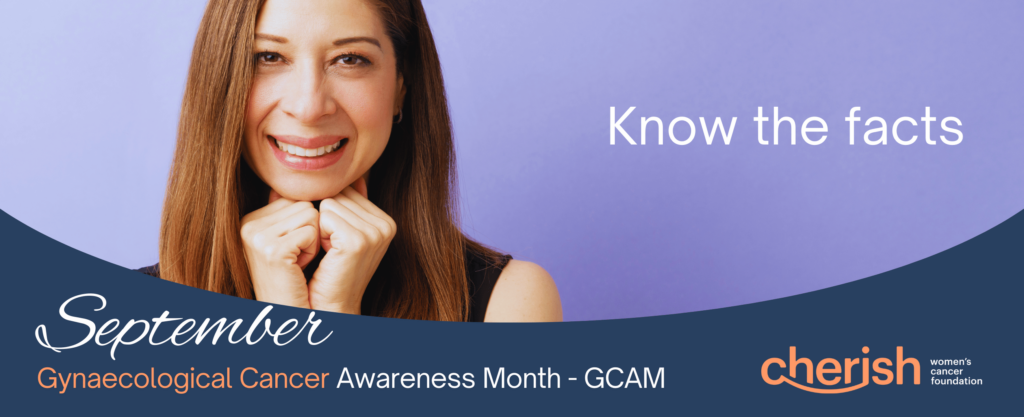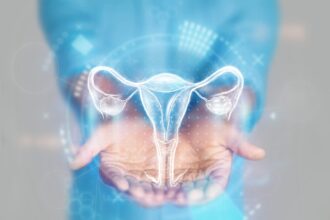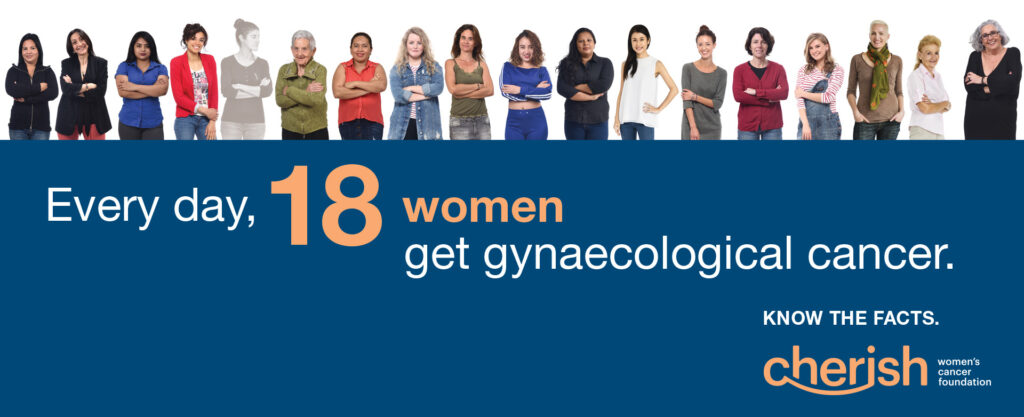
Know your body, know the signs
September is Gynaecological Cancer Awareness Month. At Cherish Women’s Cancer Foundation, we want to encourage everyone to learn more about gynaecological cancers, the signs and symptoms, where to get support and how you can help us fund research that will save lives.

About Gynaecological Cancers
Each year in Australia, more than 6700 women are diagnosed with gynaecological cancer and this number is increasing each year. Almost a third will not survive their disease. Gynaecological cancers (ovarian, endometrial, cervical, vaginal and vulvar) are the third most common cancer diagnosed in Australian women.
The shame and stigma surrounding gynaecological cancer often stem from societal taboos around discussing women’s reproductive health openly. This silence can lead to delays in diagnosis and treatment, as women may feel embarrassed or reluctant to seek medical help. Additionally, the stigma can be isolating, making it harder to find support and understanding during their treatment journey.
During Gynaecological Cancer Awareness Month, we also highlight why research in this area is crucial to improving women’s survival rates and quality of life. Every day in Australia, 18 women are diagnosed with gynaecological cancer. Six of these women will not survive.

Early detection is vital
Gynaecological cancers can be difficult to detect. It’s important that women know their body and know the signs.
Symptoms can include:
Cervical cancer is the most preventable gynaecological cancer, thanks to the national cervical cancer screening program. However, ovarian, endometrial and vulvar cancer are not picked up by cervical screening and often remain undetected until they have spread, making them more difficult to treat.
If you are concerned about possible symptoms, it is crucial to consult your doctor immediately.
Download the signs and symptoms flyer.
![]()
Funding research saves lives
The only way to prevent deaths from gynaecological cancer is by funding research to improve our understanding of how cancer starts, grows and spreads. Join us to find kinder and more effective ways to prevent, detect and treat gynaecological cancer.
Since 2008, Australian Government funding for gynaecological cancer research has been cut in half, from $14 million to just $7 million, even as cases among women continue to rise. We can no longer accept this stagnation—immediate action is needed. Cherish is determined to revolutionise the care for women and girls facing gynaecological cancer. While we can’t change the diagnosis, we are committed to funding groundbreaking clinical trials and research to find causes, prevention, and gentler treatments, paving the way for a brighter, kinder future.
This year we will continue in our efforts, with the ‘Cherish Challenge’ set to take place this October. The ‘Cherish Challenge’ will see a team of fundraisers trek, cycle and raft across picturesque New Zealand to raise further awareness and funds.
Donate to our New Zealand Challenge Coast to Coast campaign for a kinder tomorrow for all women.
Donate for a kinder, brighter future.
Without community support, research trials like feMMe and ENDO3 would never get started.
During an earlier trial, the QCGC Research team found that even with laparoscopic surgery for endometrial cancer, larger women did not fare well. This discovery led to the feMMe trial, made possible with initial funding support from Cherish.
Cherish funded QCGC Research’s first post-doctoral researcher, Dr Eva Baxter, to work on this vital research.
feMMe aims to treat women with endometrial cancer less invasively using the Mirena, an intra-uterine device (IUD), and an anti-diabetes drug, Metformin. The research team recruited 165 women for the trial, with the last patient enrolled in April 2020, and will follow the women’s progress for seven years.
Now, feMMe has evolved into a new study – feMMe Molecular, which aims to gather evidence to determine which women benefit from this minimally-invasive approach and which do not. Read more.
ENDO3 is a world-first randomised clinical trial studying the benefits and risks of lymph node removal during the treatment of women with endometrial cancer.
Over the past two years, Cherish has given more than $130,000 to this vital research. As a result of this early investment to gather initial data, the ENDO3 team has secured Australian Government funding to expand the trial.
 Currently, doctors perform a hysterectomy and a lymph node dissection under one anaesthetic, but the benefit of this approach has never been shown in a randomised trial. Doctors and patients are concerned this surgery may cause ‘more harm than good’. ENDO3 will determine the value of continuing (or not) the procedure in early-stage endometrial cancer treatment. ENDO-3 started in 2021. Since then, 13 surgeons have been accredited, and 153 patients, from eight Australian sites have volunteered for the trial. Read more.
Currently, doctors perform a hysterectomy and a lymph node dissection under one anaesthetic, but the benefit of this approach has never been shown in a randomised trial. Doctors and patients are concerned this surgery may cause ‘more harm than good’. ENDO3 will determine the value of continuing (or not) the procedure in early-stage endometrial cancer treatment. ENDO-3 started in 2021. Since then, 13 surgeons have been accredited, and 153 patients, from eight Australian sites have volunteered for the trial. Read more.